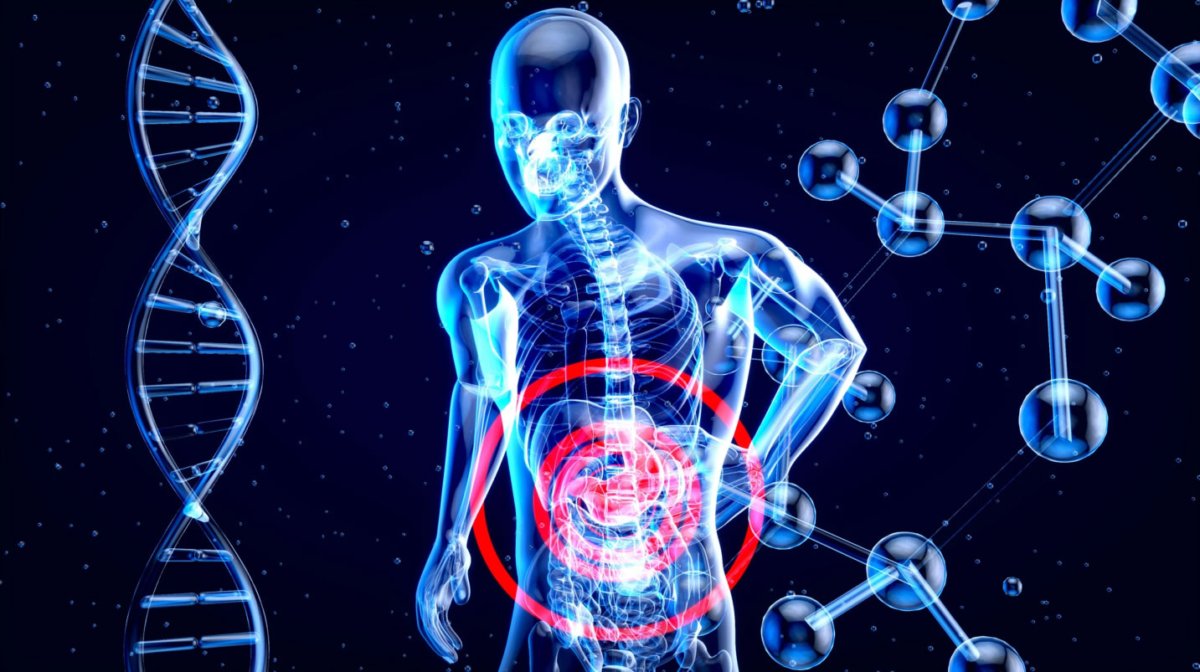The Gut-Anxiety Connection: Exploring the Microbiome’s Role in Mental Health
Anxiety disorders, affecting millions worldwide, are increasingly linked to disturbances in the gut microbiome. The gut-brain axis, a bidirectional communication system between the gastrointestinal tract and the central nervous system, plays a pivotal role in this connection. Emerging research highlights how gut health influences anxiety and vice versa, offering new avenues for understanding and potentially treating these conditions.
Understanding the Microbiome-Gut-Brain Axis
The gut microbiome comprises trillions of microorganisms residing in the digestive tract. These microbes produce neurotransmitters like serotonin and gamma-aminobutyric acid (GABA), which are crucial for mood regulation. Approximately 90% of serotonin is produced in the gut, underscoring its significance in mental health.
Stress and anxiety can alter the gut microbiome, leading to dysbiosis—a microbial imbalance characterized by a reduction in beneficial bacteria and an overgrowth of harmful ones. This imbalance can trigger systemic inflammation and disrupt neurotransmitter production, exacerbating anxiety symptoms (PubMed).
Research Insights into Gut Microbiota and Anxiety
Recent studies have provided compelling evidence linking gut microbiota alterations to anxiety disorders:
Dysbiosis and Inflammation: Individuals with anxiety disorders often exhibit an abundance of pro-inflammatory bacteria and a depletion of short-chain fatty acid (SCFA)-producing bacteria, such as Faecalibacterium. This imbalance may contribute to anxiety through peripheral inflammation signaling to the brain (PubMed).
Specific Bacterial Taxa: Research indicates that bacteria like Eubacterium, Coprococcus, and Faecalibacterium may be depleted in generalized anxiety disorder (GAD), suggesting a potential microbial signature for the condition (PubMed).
Causal Relationships: Mendelian randomization studies have identified specific gut microbiota associated with depression and anxiety, supporting the hypothesis that microbial imbalances can causally influence these psychiatric disorders (PubMed).
Therapeutic Implications: Modulating the Microbiome
Given the gut’s influence on mental health, interventions targeting the microbiome are being explored:
Probiotics: Certain probiotic strains, such as Lactobacillus and Bifidobacterium, have shown promise in reducing anxiety symptoms by restoring microbial balance and modulating inflammation (PubMed).
Dietary Interventions: A diet rich in fiber, prebiotics, and fermented foods can enhance gut microbiota diversity and support mental well-being. Studies suggest that dietary changes may be more effective than probiotic supplements in alleviating anxiety symptoms (EatingWell).
Fecal Microbiota Transplantation (FMT): While still under investigation, FMT has been proposed as a potential treatment to restore healthy gut microbiota and improve mental health outcomes (PubMed).
Practical Recommendations for Supporting Gut Health
To promote a healthy gut and potentially alleviate anxiety symptoms:
Consume a Balanced Diet: Incorporate a variety of fiber-rich foods, such as fruits, vegetables, and whole grains, along with fermented foods like yogurt and kimchi.
Manage Stress: Engage in regular physical activity, practice mindfulness, and ensure adequate sleep to support both gut and mental health.
Avoid Unnecessary Antibiotics: Use antibiotics only when prescribed by a healthcare professional, as overuse can disrupt gut microbiota balance.
Consult Healthcare Providers: Before starting any new supplement or making significant dietary changes, discuss with a healthcare provider, especially if you have existing health conditions.
Conclusion
The intricate relationship between the gut microbiome and anxiety underscores the importance of holistic approaches to mental health. While research is ongoing, maintaining a healthy gut through diet, lifestyle, and potential microbiome-targeted therapies may offer new avenues for managing anxiety disorders.
References:
The gut microbiota in anxiety and depression – A systematic review
The Role of Gut Microbiota in Anxiety, Depression, and Other Mental Disorders
Gut Microbiota in Anxiety and Depression: Unveiling the Mechanisms
Gut microbiota variations in depression and anxiety: a systematic review
Brain Neurotransmitter Modulation by Gut Microbiota in Anxiety and Depression
The Gut Microbiome and Mental Health: Implications for Anxiety
Perturbations in Gut Microbiota Composition in Psychiatric Disorders
Effects of regulating intestinal microbiota on anxiety symptoms
The Role of the Gut Microbiota in Dietary Interventions for Mental Health
Your Gut Bacteria May Play a Role in Your Risk for Depression—a New Study Explains Why
Tags:
Recent posts
-

Why You Feel Hypothyroid Even When Your Labs Are “Normal”
02/21/2026 at 12:10
-

Thyroid Weight Gain: Why Dieting Stops Working
02/21/2026 at 09:02
-

GI Symptoms Explained: How to Relieve Digestive Issues with Nutrition
01/14/2026 at 14:57
-

Eating Healthy in the New Year: Mindful, Sustainable Habits That Actually Last
01/05/2026 at 14:19
-

Wellness and Nutrition for People Living With Autoimmune Diseases
11/11/2025 at 18:22
-

Nutrition Counseling: What does the first session entail?
10/23/2025 at 13:24
-

The Power of Nutrition in Perimenopause and Autoimmune Health
10/19/2025 at 19:45
-

How Nutrition Can Help Manage Chronic Pain: Evidence & Tips
10/16/2025 at 17:47


Leave a reply